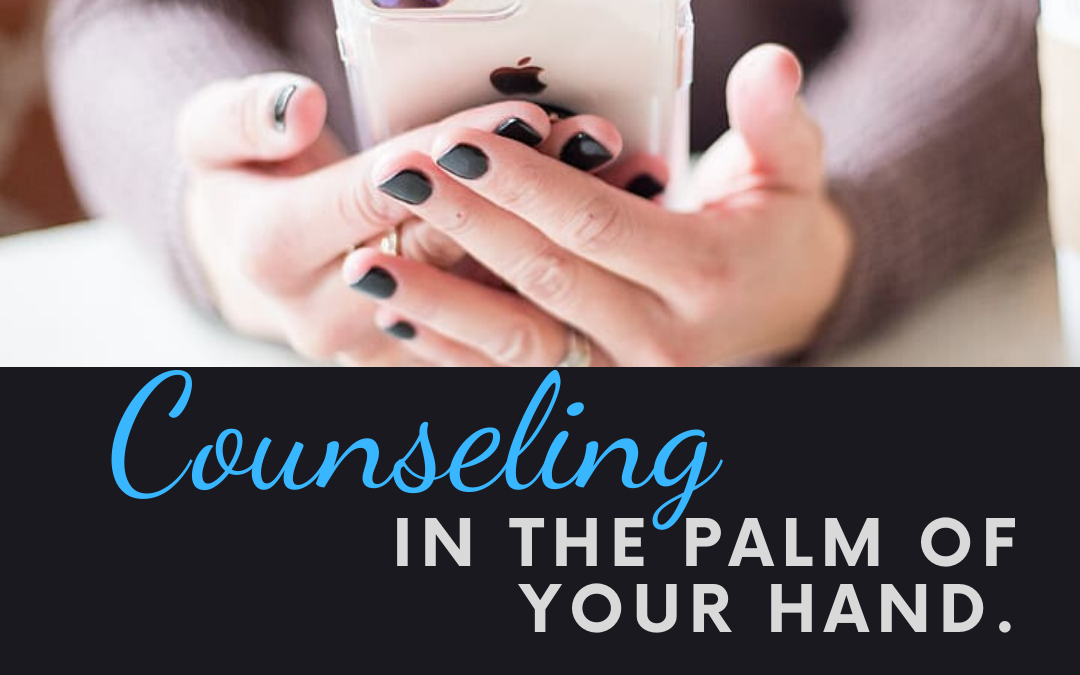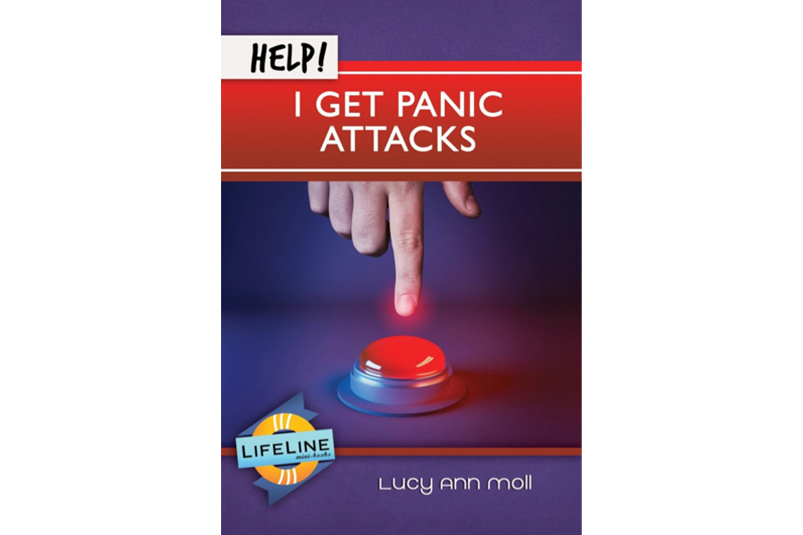
by Lucy | Dec 18, 2019 | biblical counseling, emotions
When Christmas cheer brings on isolating loneliness, how can your survive, even thrive?
This short article shows that you really can find God in your loneliness at Christmas! And it’s NOT another tiresome to-do list!
Loneliness at Christmas, or any time of the year, unsettles us. It’s uncomfortable and unwanted. It may drive us to seek false comforts: TV, Facebook, sleep, food, booze, sex. It often turns us inward, compounding the lonely ache in our hearts.
Consider Lydia Brownback’s description of loneliness at Christmas.
“Looks like winter is here!” Brownback called to the mom next door as she and her neighbors cleared their cars and walkways.
“Indeed it is!” the neighbor responded. “And the timing of all this snow is perfect. After supper we’re going to make hot chocolate and decorate the Christmas tree. The kids are really excited.” Picturing her neighbor spending quality time with family sparked a deep sense of loneliness in Brownback. She had no one to share the festivities with, and it hurt, she shared in her book, Finding God in My Loneliness.[1]
The good news is that when we seek God as our true treasure, we find what we’ve been looking for all along: Him.
What Is Loneliness?
Loneliness is “an emotionally painful sense of not being connected to others. The lonely person may feel unwanted, isolated, and left out.”[2] It is a pain of disconnect. It is not social isolation, per se.
There are many people who love their alone time and do not feel lonely. Rather, it is the distress of what one has and what one wants, played out in the arena of social relationships. David Powlison pinpointed this disconnect: “Fear and desire are two sides of the same coin. A sinful fear is a craving for something not to happen… If I long to be loved, I’m terrified of rejection. If I fear pain or hardship, I crave comfort and pleasure.”[3]
Loneliness Is Common
Married or single, young or old, male or female, counselor or counselee–we all have suffered this empty feeling of disconnectedness at some point. For some of us, it’s chronic and unrelenting. Loneliness may affect three out of four Americans, a 2018 survey reveals. And it’s bad for our health, social scientists claim.
Connecting through social media doesn’t help. In fact, it may worsen it. It appears that many people are substituting online connections for in-person connections.
What Does Loneliness Reveal?
The reason we feel lonely is God created us for community with Him and others. He fills the lonely ache in our heart.
Loneliness began in the Garden long ago when the first couple rebelled against God and looked for fulfillment apart from Him. Their sinful declaration of independence separated them from God and one another. It brought Adam and Eve fear, shame, guilt, and loneliness.
The good news is that God had a plan from the beginning to restore man to a personal relationship with Him. Indeed, God made us with the capacity for loneliness to point us to Him, and we find what our hearts desire only in Him.
“And in Him you have been made complete, and He is the head over all rule and authority” (Col. 2:10).
Man’s False Solutions
The earthly solutions for loneliness fail to bring real and lasting change. Among them are:
- baking another batch of holiday cookies
- jamming the calendar with activities
- scrolling Facebook and Instagram
- binging on Hallmark Christmas movies
When we choose our own solutions over God’s, our loneliness deepens. In contrast, God’s solutions for loneliness draw us to Him and others.
God’s True Solution
We were created for a deep, personal relationship with God that cannot be satisfied through work, hobbies, marriage, or anything else. Keeping our eyes focused on Jesus and serving others solves our loneliness problem. We must resist focusing inward when we feel disconnected.
To get to the root, the lonely person might seek the answers to these two questions:
- Who am I focusing on?
- What am I living for?
There are two choices: God or self. Matthew 10:39 clarifies our need for God’s remedy. It reads, “Whoever finds his life will lose it, and whoever loses his life for my sake will find it.”
With this in mind, we find God in our loneliness. We can admit that when we turn to our own solutions for loneliness, we are looking to self for completion. In addition, we can choose to seek to treasure Him above all.
Keep Doing These 4 Things
1. Spend time in the Word daily helps us know Him.
2. Prayer.
3. Attend a Bible-believing church allows us to hear the gospel preached and to know and serve other believers.
4. Intentionally serve others in our families and neighborhoods through volunteering. And volunteering need not be formal; simply listening deeply is a gift.
Most of all, we recognize that our loneliness is pointing us to God. So, during the holidays, when loneliness may become particularly painful, resist turning inward. Rather, let this unwanted feeling help you realize something’s missing. That something is found in Jesus alone.
Those who belong to Jesus are never truly alone. He has the remedy for loneliness at Christmas and all year long.
[1] Lydia Brownback, Finding God in My Loneliness, (Wheaton, IL: Crossway, 2017), 13.
[2] Mary Somerville, “Coping with Loneliness,” National Association of Nouthetic Counselors, Annual Conference, 2005, mp3.
[3] David Powlison, “Dynamics of Biblical Change,” class notes, Christian Education and Educational Foundation (CCEF), 2002. Quoted in Lydia Brownback, Finding God in My Loneliness, (Wheaton, IL: Crossway, 2017), 25.
This article appeared first here at The Biblical Counseling Coalition. Minor edits for space.

by Lucy | Nov 25, 2019 | biblical counseling, emotions, thoughts |
You need to repent of idols of the heart. Idols of the heart are ruling desires of your heart. Begin by identifying the heart with these two questions:
1. Is your desire, “Not my will, but yours be done” (Luke 22:42, NIV)?
2. Or does your cry sound more like demands for security, approval, comfort, and love?
When you want security, approval, comfort, and love, and get want you demand, pride will fill you. Underneath the veneer of pride and self-righteousness are emotions like anxiety, anger, and discouragement and actions like seething, shouting, nail-biting, insomnia, overeating, and self-loathing.
Just as the prodigal son demanded his way, just as the older son self-righteously sneered at his brother when he returned home, chances are you too have ruling desires of the heart that are unholy.
Pray and ask the Holy Spirit to reveal to you negative thoughts, critical speech, gossip, bitterness, immorality, and anything else that exposes a self-ruled heart.
You may want to jot down what the Holy Spirit reveals to you. What are the “rotten fruit” that expose the ruling desires of your heart?
Faithfully yours,
Lucy

by Lucy | Nov 18, 2019 | biblical counseling
What if you could meet with a biblical counselor when and where you choose? Online biblical counseling via video and real-time chat puts counseling in the palm of your hand, literally.
It has three huge advantages as well. As a counselor who’s provided online biblical counseling since 2008, I’d love for you to know more about it. Perhaps it’s the right choice for you or someone you care about.
Equally awesome: It’s affordable.

When a hurting person meets with a biblical counselor via video, the world opens.
Counselees living in Topeka or Timbuktu, and every place in between, can receive the benefits of counseling by the Word and in the power of the Spirit, wherever they are. In fact, all that’s needed to “deliver” biblical counseling is the internet. And some 4.5 billion have internet access worldwide.
If you’ve used Facetime or video conferencing, you’ll understand the concept of video counseling. It’s talking with someone through a device while also seeing them. Today’s technology makes this possible and even commonplace.
Advantage #1: Easy access
Meeting by video allows easy access to biblical counseling. Counselees need only a smartphone, tablet, or a computer and the internet. Most counselees use the Internet at their home for counseling; some drive to a nearby McDonalds or Starbucks (which typically offer free Internet) and have their counseling appointment in the privacy of their car.
Due to easy access, I’ve had the privilege to meet with counselees in my town and across the globe since 2008 when I began this type of counseling.
Here are a handful of the women I’ve counseled via video:
- Kari*, a pastor’s wife and mom on the East Coast.
- Jackie, a retiree in the UK.
- Anna, a working, married mom of two children in Germany.
- Susie, a stay-at-home mom of two preschoolers near Los Angeles.
- Beth, a single, soon-to-be missionary in NYC.
- Liz, an unmarried career woman in Australia.
They each desired biblical counseling to look at the heart’s primary question: Whom will you trust? God or self? And their goal was the same; that is, lasting change.
Advantage #2: Convenience
When I mentioned that I’ve counseled folks who lived in my town near my office, perhaps you wondered why. There are at least four reasons, and all revolve around convenience.
- Horrible weather. (Think snow and sleet.)
- Infants and preschoolers at home.
- Car trouble.
- Disability, physical and/or emotional (such as severe fear of leaving home).
But the fifth type of convenience is equally important: meeting with a biblical counselor when the nearest one is a great distance away.
Kari, a pastor’s wife, desired biblical counseling for a life-dominating sin. (She too is ACBC-certified like me and the counselors at Biblical Counseling Center.) However, she’d have to travel to another state to get it. Plus, after working all day, she wanted to go home and hug her young daughter and husband, and then have her counseling appointment.
Advantage #3: Biblical counseling anywhere!
Biblical counseling connects people to the gospel and to the wisdom of the Word, and it provides compassion and effective care as well as practical solutions to life’s struggles. With video counseling, it may be as close as your pocket, literally.
Using video on your phone or other device means you can receive counseling wherever you are. Many apps help make this possible; a few are Skype, Zoom, Facetime, WhatsApp, and FreeConferenceCall. Biblical Counseling Center’s counselors are now using SimplePractice, an app that lets you meet with your biblical counselor in a private virtual room. To begin the appointment, you simply click a link at your appointment time.
A couple of years ago, a teacher at an English-speaking school in Tunisia sought me for counseling for her anxiety. She liked talking with someone back home. We had a crystal-clear connection almost always. She said that if she hadn’t found a biblical counselor like me who offered counseling via video, she’d have missed out. Biblical counseling helped her intentionally and consistently apply God’s Word to her struggle and overcome it. She praised God for this new way of connecting.
Downside: But what if a call drops?
Truth be told, a downside of counseling via video is the occasional dropped call. For this possibility, my counselees and I have a plan in place, including who calls whom. And almost always we’re picking up where we left off within a minute or two.
For all the advantages of video counseling, including easy access and convenience, I am anticipating an expansion of it. In fact, I still have one continent left to deliver biblical counseling: Antarctica! If you know someone in need of counseling near the South Pole, send me a text.
*Identifying information has been altered for this article.
This article appeared first here at BiblicalCounselingCenter.org and has been edited slightly.
Faithfully yours,
Lucy

by Lucy | Nov 12, 2019 | biblical counseling
Imagine what would happen if we lived victorious faith.
In place of tired and weary hamster-wheel Christianity, people would see Christ in us, in you, right? We’d have a spring in our step, a genuine smile on our fact. Vibrant, authentic, compassionate — these words would describe us.
This description fit one of my counselees too. I met with this 40-something West coast woman by video-conference, where she peered at me through chocolate-colored eyes and shared her heart for women in prison. She visited them, cried with them, brought them hope through her own sad story of brokenness.
God gave her grace to love “the least of these.” In response, she believed God and acted on her belief. She lived out of victorious faith, and so can you and I.
Remember this faith definition:
Faith is choosing to act on your belief
no matter how you feel.
Remember these 4 key faith words!
Believe. Act. Choose. Know.
1. Believe.
Victorious faith is believing in the Word of God. Do you believe the Word–that is, the Bible–and all it says about God and about you? You are chosen, loved, forgiven, and a daughter of the most high God of love and holiness.
2. Act.
Victorious faith is acting upon your belief. One thing I share with my counselees is believing the Word can be tough sometimes, but acting on your belief is often tougher. Indeed, your actions show whether your belief is true.
Several summers ago, I drove six hours alone to a writer’s conference. So what? you may ask. When I zoomed my Honda on the highways, I acted in faith that God is with me even if I had a panic attack. If you’ve experience panic attacks, you know this terror, a terror I wish on no one. (I wrote a mini-book on it too: HELP! I Get Panic Attacks. You can order it here.)
I had been plagued by highway driving phobia since my late 20s. Now was the time to act on my belief. What belief do you struggle acting upon? What is one step you can take toward acting upon your belief?
3. Choose.
Victorious faith is choosing to act on your belief no matter how you feel. Was I scared during my drive from my home to the conference? At times, yes. I felt tense and edgy and shaky every so often and especially when the traffic got heavy or I had to make highway changes.
Yet I chose to act of my belief in my fear.
I could have let my fear keep me home. And, sadly, many times I’ve made the choice to let my feeling rule me. When have you given into to your emotions? Which emotions tend to get the best of you? What can you do differently and honor God?
4. Know.
Victorious faith is knowing God promises a good result. What do people say about life and lemons? When life hands you lemons, make lemonade. God promises more than a refreshing beverage. He promises that faith in his Son Jesus brings everlasting life now to those who believe.
In fact all of his promises are wonderful. He promises provision and protection and peace as well as loving discipline, abundant life, and hope.
Savor this familiar scripture:
Trust in the Lord with all your heart,
and do not lean on your own understanding.
In all your ways acknowledge him,
and he will make straight your paths. (Prov. 3:6-7)
Believe the Word of God and act on it, no matter how you feel, knowing God promises a good result.
Next Step to Victorious Faith
What helps you act on your belief that God is who he say he is and keeps promises? What gets in the way of your acting on your belief? May I encourage you swap faith stories with a trusted Christian girlfriend?
We all need encouragement. Be that person who loves like Jesus.
But sometimes we’re tired.
If you tired and weary, and you’d like counseling to reclaim joy and honor Jesus, please contact me. We can set up a complimentary counseling phone consult at your convenience. Click here to request a free consult.

by Lucy | Nov 7, 2019 | biblical counseling, emotions, thoughts
Jennifer asked me how to change her thoughts. She had spiraled deep into discouragement and wanted to feel like her old self: upbeat, positive, happy. “This isn’t me,” she shared. “I keep thinking negatively about everything over and over and over. I don’t know how to stop.”
In this article, you learn three new ways to think about your thoughts and learn how to stop life-sapping thinking:
- Ask yourself if your thoughts glorify God.
- Change the thoughts he wants you to change
- Take every thought captive.
1. Ask Yourself an Important Question
What you say to yourself matters. What you think becomes who you are. You want to think well, don’t you? Then you need to ask if your thoughts glorify God.
Words kill, words give life;
they’re either poison or fruit–
you choose. Prov. 18:21
A helpful place to begin is writing down your thoughts in a small, spiral notebook that’s easy to carry with you. When a negative thought pops up, write it down and note what was happening around the time of the thought. Do this for about three days. Don’t concern yourself with changing your thoughts at first. The point is to become aware of them.
You may become aware of thoughts you didn’t even know you were thinking!
Click & Tweet!
Do you say one of these uglies to yourself?
Very often women silently tell themselves things like:
- I’m such an idiot.
- No one likes me.
- I’m ugly.
- I can’t do anything right.
Did you have any of these thoughts?
Practical help: Review your list of thoughts. Which are the most common ones? When did you tend to have them? Are they glorifying to God? Jennifer had most of her automatic, negative thoughts in the morning before she got out of bed and asked God to show them to her. She wrote out Psalm 139:1-2:
Search me, O God, and know my heart;
test me and know my thoughts.
Point out anything in me that offends you,
and lead me along the path of everlasting life. Psalm 139:23-24
Like Jennifer, you can ask yourself whether your thoughts are glorifying to God.
2. Change Your Thoughts
Which thoughts is God nudging you to change? Not sure? You could measure your thoughts by the instruction of Philippians 4:8.
Finally, brothers, whatever is true, whatever is honorable, whatever is just, whatever is pure, whatever is lovely, whatever is commendable, if there is any excellence, if there is anything worthy of praise, think about these things.
Jennifer noted that one of her recurring thoughts was, “I’m never going to get better.” This thought is in opposition to “whatever is true.” As a Christian, Jennifer is promised by God to become more and more like Jesus Christ, who says “I came that they may have life and have it abundantly” (John 10:10b). This process is called “progressive sanctification.”
When she told herself this life-killing lie, her discouragement worsened. Has this happened to you too? Sadly, negative thinking begets negative emotions. Conversely, says Brian S. Borgman in Feelings and Faith, “Right thinking about God produces and cultivates godly emotions such as peace, joy confidence, and hope.”
You keep him in perfect peace
whose mind is stayed on you,
because he trusts in you. (Isaiah 26:3)
Practical step: Measure your thoughts against Phil. 4:8 and ask God which one you need to change.
3. Take Every Thought Captive
God wants you to walk in the truth. You Enemy has a game plan to get you to believe lies
Click & Tweet!
— lies about yourself, about your circumstances, and about the Gospel.
We destroy arguments and every lofty opinion raised against the knowledge of God, and take every thought captive to obey Christ. (2 Corinthians 10:5)
To take every thought captive to obey Christ, you need to replace the lies with the truth. Go through the list of thoughts you wrote down. For each one that is not true, honorable, just, pure, lovely, or commendable, find a Bible verse that replaces the lie with the truth. Jot down the Bible verses you’ve found on index cards or sticky notes.
Yes, it is work to find life-giving Bible verses and write them on card or notes but well worth it. Do you think that looking up verses isn’t worth the effort? Do you have other obstacles? What are they? Why not discuss them with a trusted Christian friend?
2 examples to get you get you started.
Life-sapping thought: God doesn’t love me. He doesn’t care.
Life-giving truth: “For while we were still weak, at the right time Christ died for the ungodly. For one will scarcely die for a righteous person—though perhaps for a good person one would dare even to die—but God shows his love for us in that while we were still sinners, Christ died for us.” Romans 5:6-8
Life-sapping thought: Life must go well for me. If it doesn’t, this proves I’m a worthless loser.
Life-giving truth: “Not that I am speaking of being in need, for I have learned in whatever situation I am to be content. I know how to be brought low, and I know how to abound. In any and every circumstance, I have learned the secret of facing plenty and hunger, abundance and need. I can do all things through him who strengthens me.” Philippians 4:11-13.
Practical help: Each time your have a negative, life-sapping thought, read the index card or sticky note you made with the life-giving truth. As you repeat this process of taking every thought captive to obey Christ, you will discover that the negative thoughts diminish in frequency and power.
This was Jennifer’s discovery. As she read John 10:10 each time she thought “I’m never going to get better,” she noticed that she thought it less often and she experienced hope and joy. She’s applying the same process to other life-sapping thoughts she has. Her discouragement if lifting. She’s beginning to feel like her old self.
And it all began with thinking about her thoughts. Do you want to replace your negative thoughts too? May I invite you to contact me? We can set up a time to talk on the phone for a free 15-minute consult. I also have a downloadable ebook you make like — “Transform Your Thoughts Journal.”

by Lucy | Oct 8, 2019 | biblical counseling, emotions
In this article, I talk about victory over panic attacks and share an excerpt from my new book HELP! I Get Panic Attacks, available as a paperback and in Kindle. If you or a loved one gets panic attacks, learn how to find increasing victory and make progress even when panic attacks seem to have the upper hand.
This article appeared here at Biblical Counseling Center, where I’m on staff and offer counseling by video-conferencing worldwide.

What? A biblical counselor who gets panic attacks? Yes, panic attacks can happen even to faithful Christians. I had full-blown, heart-pounding panic on and off for many years, though now this experience is rare for me.
In HELP! I Get Panic Attacks I share how my panic attacks began along with God’s solutions and practical assignments for you to use. The mini-book just came out this month and is available at Amazon and Shepherd Press. I wrote it to help panic attack sufferers (and their loved ones) know that there really is freedom from the terror that interferes with normal life and kills hope. There’s also a short section on the use of medication, reviewed by a medical doctor.
Here’s an excerpt. I hope it helps you. Please feel free to contact me with your questions.
My panic attacks started with a job promotion
My panic attacks started with a job promotion. When I became the new managing editor of a health and food magazine, Suzy, whom I replaced, advanced to the role of executive editor. This was a happy day for both of us, right? Wrong! On promotion day, Suzy gave me unsettling, steely stares all day.
Did I do something wrong? Why is she acting so weird? Does she hate me? Will I lose my dream job already?
Confused, hurt, and fearing Suzy’s disapproval, I practically sprinted from the office at 5 p.m. Once behind the wheel of my blue hatchback, I cranked up the tunes and zoomed toward the six-lane freeway that would take me to my “safe place”: a cozy Cape Cod house that I shared with my husband, Steve, and our fluffy feline. Like Dorothy in The Wizard of Oz, I repeated, “There’s no place like home. There’s no place like home.”
As I drove, I tried to forget Suzy’s disapproving stares, but they stuck in my head like superglue. Then, suddenly, seemingly out of nowhere, my heart beat triple-time. Sweat beaded on my forehead. I swallowed a lump in my throat. My knees became wobbly, like Jell-O. A horrific sense of impending doom settled on me. Then my mind went wacko as I came to a tight curve: Drive into the ditch, Lucy. Drive into the ditch. Drive into the ditch. In panicky desperation, I spoke back to the crazy thoughts filling my mind: What’s wrong with me? Dear God, am I suicidal? Stay on the highway, Lucy. Just stay on the highway. Your exit is a mile ahead. You can make it. You can make it. What’s wrong with me? God, help me!
Panic attacks are terrifying. But you already know this, since you picked up this mini-book. If you don’t experience them yourself, you’re surely aware of how they affect someone you know. As I share my story and the extreme fear experiences of a few others, I want to help you understand three truths that have helped me.
3 truths that helped me
First, you are not the only one who struggles with panic attacks.
No temptation has overtaken you that is not common to man. (1 Corinthians 10:13)
This Bible verse teaches that we all struggle, including those of us who are “fearful”—that is, who have a propensity for anxiety. The intensity and frequency of our fears may differ, but everyone at some point has freaked out.
Second, panic attacks often proceed from faulty thinking. But by God’s grace, you can change fearful thinking patterns into God-transformed, faithful thinking. This will require a willingness to trust and obey God, as well as perseverance. Your faulty thinking didn’t develop overnight, so it most likely won’t go away overnight. Mine didn’t.
Third, God promises to help you overcome the fear that precipitates your panic attacks, assuming they don’t have an organic, physical cause (more on this later). When you learn to realign your thoughts with God’s thoughts, your panic attacks can become a thing of the past. This is hopeful, isn’t it?
God can also use your panic attacks for good
God can also use your panic attacks for good. Like me, you might begin encouraging others who have panic attacks by listening to them and by sharing your story. This verse in 2 Corinthians is dear to my heart because it gives meaning to my struggle, and I hope it will help you too:
Blessed be the God and Father of our Lord Jesus Christ, the Father of mercies and God of all comfort, who comforts us in all our affliction, so that we may be able to comfort those who are in any affliction, with the comfort with which we ourselves are comforted by God. (2 Corinthians 1:3–4)
Perhaps this is difficult for you to believe, but God knows your fears and is able to deliver you from all of them. As you read this mini-book, you will learn practical ways to turn fear into faith. Will it be easy? No. It will require diligent effort. Will it be worth it? Yes. Your fears are one means God can use to help you learn to trust him and depend on him. Addressed biblically, they can become a doorway to experiencing the peace of God which comes through the Prince of Peace who conquers fear.












